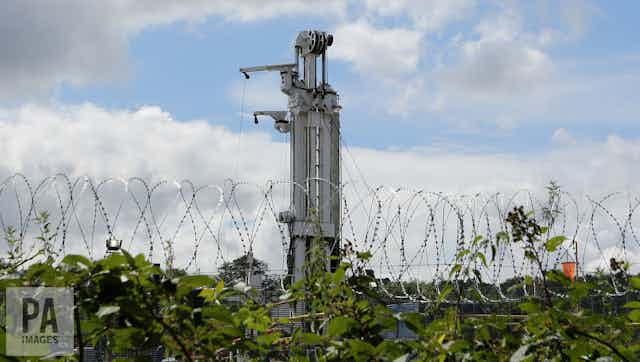“Fracking cannot and will not take place in Scotland.” With those words energy minister Paul Wheelhouse confirmed rumours that have been circulating for months, bringing jubilation to the hearts of experts, campaigners and protestors who responded to the Scottish government’s consultation on exploiting unconventional oil and gas, commonly known as “fracking”.
The decision still has to be put to the vote at Holyrood later this year, but with the Scottish National Party (SNP) and the Scottish Greens, Labour and LibDems all firmly backing the ban, it’s a formality. This is it: the evidence won.
To describe the decision as momentous is not hyperbole; this is a huge victory not just for the Scottish government, but also for Scottish democracy. With support from the Greens, the SNP government has prided itself on consulting extensively on policy matters, and this year has been a particularly busy one for energy policy.
Read more: There may be a huge flaw in UK fracking hopes – the geology
This hasn’t always been successful – the consultation on regulating district heating was a complete mess, to the point that a second one is now being prepared, and the new climate change bill has been criticised for lacking in detail and credibility. But let’s put those gripes aside for now.
Battling climate change
The benefits of fracking would have essentially been none. Any benefits would be short term, purely economic and largely restricted to the industry itself. The risks to the Scottish environment, economy and society are wide-ranging and substantial. The greatest of these is the risk of groundwater contamination, which could severely impact on communities, tourism, agriculture and the whisky industry, not to mention Scotland’s reputation as a world leader in the fight against climate change.

Fracking has no co-benefits to the environment and society, and any economic benefits would have been minimal because the reserves are located in geologically complex areas, with recent research indicating that the likelihood that around just 2% of potential reserves would be economically feasible to extract.
Compounding this, land ownership in Scotland is fundamentally different to that of the US, which has experienced significant benefits from shale gas. Scotland has less free land in which to exploit the resource, and, as part of the EU, has significantly stronger environmental regulation in place than the US.
Fossil fuels vs renewable energy
Of course not everyone is happy about this, most notably Ineos, which operates the Grangemouth chemical plant. But some claim its tactics when it comes to dissent and protest have been heavy handed.
Cuadrilla, another major developer of fracking was widely rumoured to be determined to win the “Battle of Balcombe” because if they could beat the middle classes in Sussex they’d have an easier time beating the working classes of Lancashire, scene of the UK’s biggest fracking site.
Fracking, and the targeting of those opposed to it, is simply a way of extending the reach and profits of the fossil fuel industry – this is how desperate it has become, knowing that if we are to meet our climate change targets, it needs to shrink to a tiny fraction of its current size in around a decade, and ultimately disappear completely.

For Scotland – and indeed the world – that means the next 10 years must see a managed decline of the fossil fuel industry, not an expansion into fracking, with skilled labour transferred to the country’s booming renewable energy industry. This will also put Holyrood on a direct collision course with Westminster; if the Scottish parliament is to realise its ambitions, it will have to secure full devolvement of all responsibilities for energy, particularly the Electricity Act.
This will, of course, have significant implications for a second referendum on independence as there are now clear lines between both Holyrood’s political direction, and more importantly, its use of evidence-based policymaking.
October 3’s announcement was nothing short of a landmark victory for Scotland. The ban on fracking will help the country fulfil its ambitious plans to curb emissions and combat climate change as we move towards 2020, a critical milestone for the planet.

